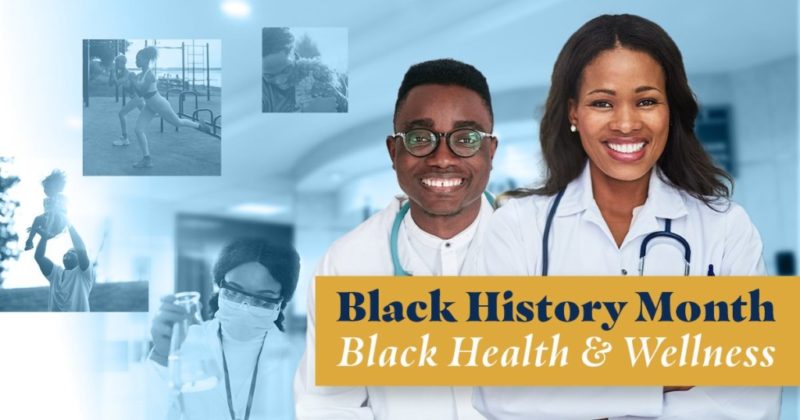The 2022 theme for Black History Month in the US is “Black Health and Wellness,” highlighting the legacy of black scholars and medical practitioners while also taking a look at how American healthcare has often underserved the black community. Black Health and Wellness not only includes one’s physical body, but also emotional and mental health. In America, minorities often suffer from poor mental health outcomes due to factors including inaccessibility of high-quality services, cultural stigma surrounding care, discrimination, and overall lack of awareness about mental health.

According to the American Psychiatric Association, Black Americans make up 13.3% of the US population, yet approximately 11% of African Americans are not covered by health insurance, compared with about 7% for non-Hispanic whites. Only one-in-three Black Americans who need mental health care receives it – and even when they do, it is often of poorer quality that that received by their white counterparts, and culturally incompetent as well. The American Psychiatric Association (APA), states that compared with whites with the same symptoms, African Americans are more frequently diagnosed with schizophrenia and less frequently diagnosed with mood disorders. Differences in how Black and African Americans express symptoms of emotional distress may contribute to misdiagnosis and provides evidence that physician-patient communication differs for Black and African Americans versus White Americans. Additionally, the APA reports that compared with whites, Black and African Americans are less likely to be frequently included in research.
An unfortunate parallel that can be drawn from lack of mental health care is an increased use in illicit drugs. According to the APA, compared with non-Hispanic whites, Black and African Americans with any mental illness have lower rates of any mental health service use including prescriptions medications and outpatient services, but higher use of inpatient services. Yet, the rate of illicit drug use among Black and African Americans is slightly higher than the national average (12.4% vs 10.2%). Rates of alcohol use is slightly lower than the national average (44.2% vs 52.7%) including heavy drinking (4.5% vs 6.2%) and binge drinking (21.6% vs 23%).
To help mitigate the disparity that Black and African Americans face, sites like Blackdoctor.org provide a search engine tool that connects patients to culturally sensitive physicians in their area. Sites like Psychology Today offers a portal to search for Black and African American therapists by cost, location, issue, and therapy time. Websites like Alkeme Health and Black Mental Health Alliance provide mental health content specific for Black and African American users.
Even when culturally sensitive therapy is available, the stigma surrounding mental health may prevent some Black and African Americans from obtaining help. Dr. W. Marvin Dulaney, president of The Association for the Study of African American Life and History (ASALH), says, “There’s been a stigma among some Black and African Americans about getting mental health or getting help period in terms of mental conditions. As a result, Black and African Americans are less likely to seek help, whether they’re depressed or having other issues.” This is especially true for Black men who also face the additional stigma surrounding men seeking help for mental conditions. To help combat this stigma, sites like Therapy for Black Men and Black Men Heal provide a list of available Black and African American therapists providing “multi-culturally competent care” to Black men.
You can help lessen the gap Black and African Americans’ face in receiving mental health care by supporting organizations that support Black and African American mental health care. A full list of these resources can be found at National Alliance of Mental Health (NAMI)’s Black and African American Page. The list includes several resources like the ones listed below:
- NAMI’s Share the Hope – a program that explores the journey of mental wellness in Black communities through dialogue, storytelling, and a guided discussion.
- Black Emotional and Mental Health Collective (BEAM) – a group aimed at removing the barriers that Black people experience getting access to or staying connected with emotional health care and healing. They do this through education, training, advocacy, and the creative arts.
- Black Mental Wellness – provides access to evidence-based information and resources about mental health and behavioral health topics from a Black perspective, as well as training opportunities for students and professionals.
